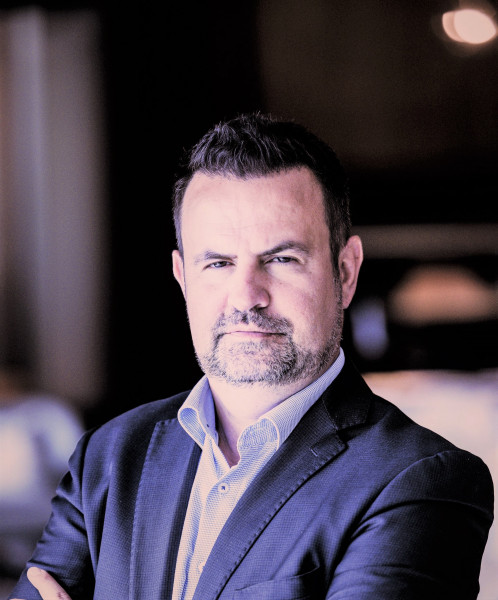

It very much appears that 2019 will not be an easier year than 2018 was in terms of yields, and many people are anticipating the next crisis this year. This section aims to discuss, with renowned macroeconomic and market analysts, whether it is indeed time to flee the capital markets, how likely a recession is this year, and what kind of year the bond and stock markets can expect.
08:55 - 09:00
Welcome speech
Zoltán Bán, CEO, Net Média Zrt. (Portfolio)
09:00 - 09:20
Will 2019 be the year of crisis? – For and against
Speaker: György Juscsák, Executive Director, JP Morgan Asset Management
09:20 - 09:40
What investment opportunities are available on the bond and stock markets?
Speaker: Hans-Jörg Naumer, Global Head of Capital Markets & Thematic Research, Allianz Global Investors
09:40 - 10:40
Time to flee capital markets? - Panel discussion
Conversation participants:
10:40 - 11:00
Coffee break
They say the time of professionals comes when markets perform poorly. Last year, absolute return funds had a mixed performance, so it remains to be seen what strategies and market views they will apply this year. This section aims to offer an insight into the market visions and investment strategies of renowned portfolio managers managing absolute return funds,
11:00 - 11:20
ESG, SRI, Impact Investing: hype or lasting trend?
Speaker: Bertrand Pujol, Global Head of Partnership & Services - Marketing Retail, Amundi Asset Management
11:20 - 11:35
Active and passive investments: which is more attractive to investors?
Speaker: István Al-Hilal, igazgató, Fidelity International
11:35 - 12:30
Strategies of the biggest absolute return funds - The professionals speaking
Conversation participants:
Ever since Hungarians took a liking to retail government securities, many other savings and investment products have been floundering: the assets of investment funds have been unchanged for several years, wealth held in shares can not produce real growth, while retirement funds and pension insurers have been unable to secure substantial investments form customers. In this section, savings and investment market leaders will give us an overview of what instruments could be used to lure retail investors away from government securities and to mobilise the large amounts of cash currently kept under the mattress, while we also look at sensitive issues such as commissions, profit margins and future sales trends.
11:00 - 11:20
Who bears the burden of sovereign debt?
Speaker: György Barcza, CEO, Government Debt Management Agency
11:20 - 11:40
Households retain huge amounts of cash – Who will manage to channel this money?
Speaker: Zsolt Kuti, monetáris politikáért, pénzügyi piaci és makrofinanszírozási elemzésekért felelős ügyvezető igazgató, Magyar Nemzeti Bank
11:40 - 12:30
Can Hungarians be diverted from retail government securities? - Panel discussion
Conversation participants:
12:30 - 13:40
Lunch break
Beside capital markets, commodity markets also received increased attention last year: oil became the focus of attention after the slump beginning in October, and the same goes for gold, regarding which there is uncertainty whether it will be actually resistant to the next crisis. This section aims to provide an overview of other investment opportunities for those who are willing to look beyond traditional investments and try alternatives such as the commodity or property markets.
13:40 - 14:00
Cannabis stocks - The investment of the future?
Speaker: Zsolt Kardos, senior product manager, Aegon Alapkezelő
14:00 - 14:15
Is a new golden age about to begin? Will the property market remain strong?
Speaker: Norbert Cinkotai, vezető elemző, KBC Securities
14:15 - 14:55
Alternative investment opportunities – What is worth investing in? - Panel discussion
Conversation participants:
There have been several regulatory changes in 2018 and 2019 regarding domestic investment funds, including the introduction of the MiFID II directive, tighter money market regulations, and the inclusion of the shares of regulated property investment companies as an investment opportunity for property funds. Meanwhile, the restructuring of investment funds has been increasingly spectacular as property funds now account for a quarter of assets managed. In this section, we will look at the future of investment funds in the current yield and capital market environment, explore whether any basic category can keep competing with property funds, and look at why certain providers exclude basic types evidently favoured by investors.
13:40 - 14:00
The uncertain future of investment funds - A look back and thoughts on the possible future under a new MiFID 2 regime
Speaker: Miklós Konkoly, vezérigazgató, Generali Alapkezelő
14:00 - 14:50
The world of investment funds is changing – What will survive? - Panel discussion
Conversation participants:
14:50 - 15:10
Coffee break
There has been much discussion about the challenges private bankers face, including the difficulties of customer acquisition or finding more efficient channels for the money of customers. We hear less about what informs the investments of premium private banking customers, about what they think of an upcoming market collapse, and what is the most important thing they expect from their private banking providers. This section will feature Hungary's star private bankers and brokers, who will help us examine what private banking customers really desire, how they think, how they invest, and what they learned from the 2008 crisis, while also sharing the most exciting actual stories from the past couple of years.
15:10 - 15:25
The future of wealth management as retail government securities gain ground
Speaker: László Somlai, Head of Sales Department, Erste Private Banking
15:25 - 15:35
Generational transition of private banking customers
Speaker: Bálint Fischer, innovációs vezető, Dorsum
15:35 - 16:25
Speaking openly about customer expectations – What informs a private banking customer's investments?
Conversation participants:
16:25 - 16:30
Closing remarks
Gold Sponsor
Silver Sponsor
Bronze Sponsor
Organisation, general questions


Sponsorship

Program
